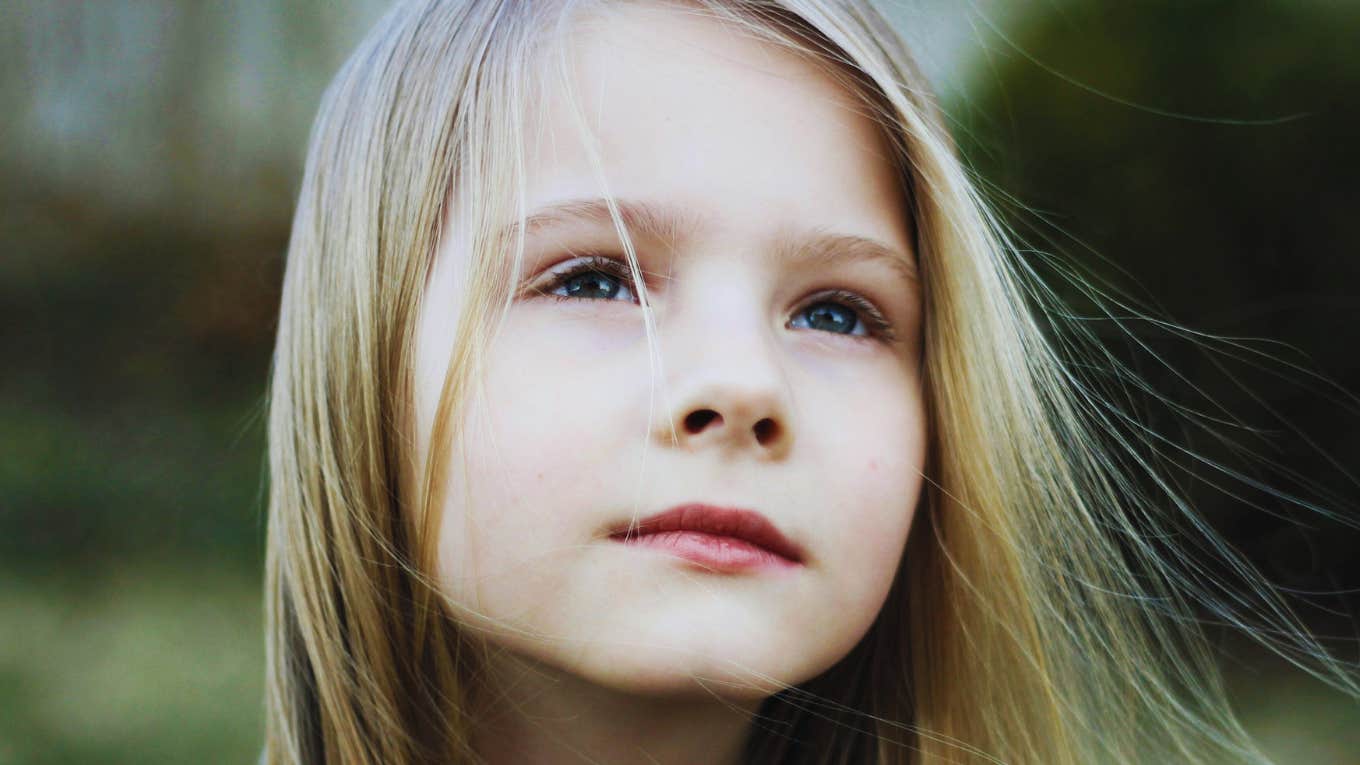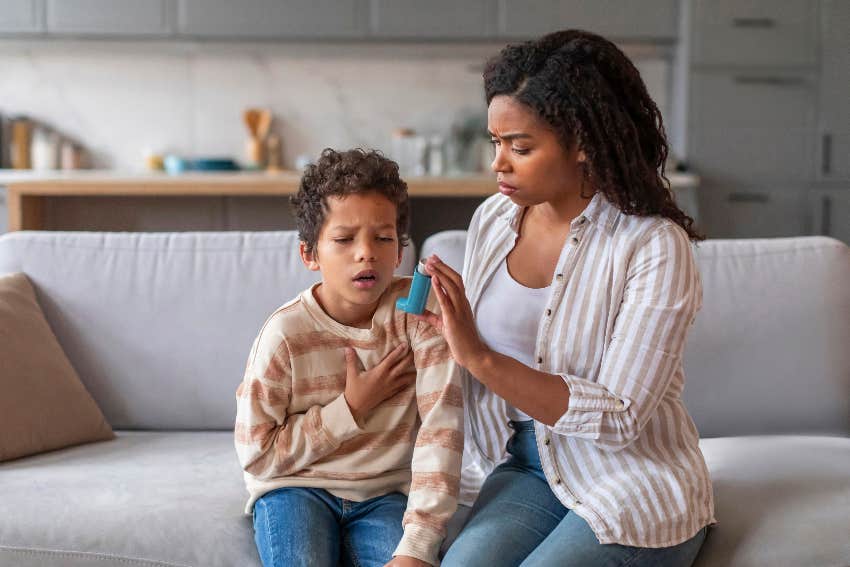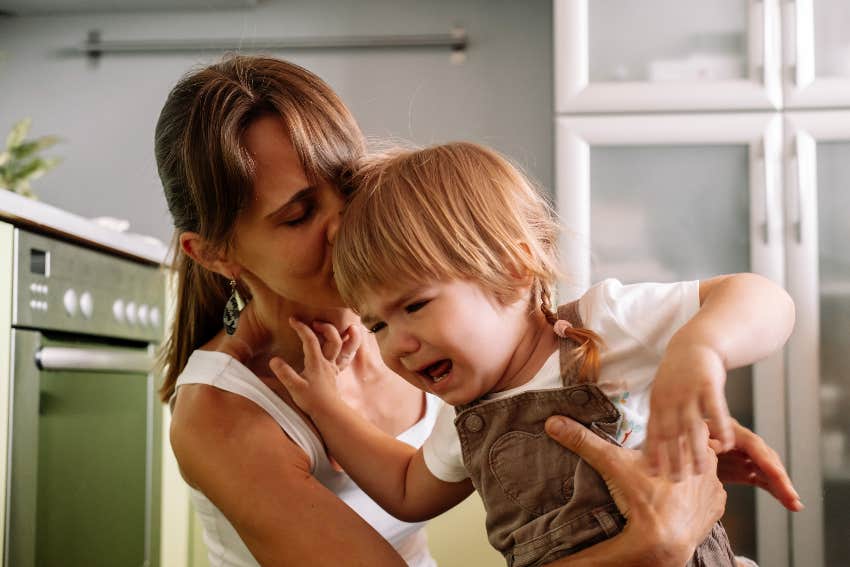Kids Who Were Raised By Helicopter Parents Exhibit These 4 Unhealthy Traits As Adults
Sheltering your child from the world is doing more harm than good.
 Bianca Berndt | Unsplash
Bianca Berndt | Unsplash Do you know what's one of the hottest research topics in psychology right now? Helicopter parenting. Study after study shows that the helicopter parenting style is one of the worst things you can do to your child (it's even worse than hiring a tutor!).
This may be why the book, How to Raise an Adult: Break Free of the Overparenting Trap and Prepare Your Kid for Success, by former Stanford Dean, Julie Lythcott-Haims, is a top seller. During her time at Stanford, she observed that the students who did best academically were always the ones who grew up with more independence, even though that meant more bumps and bruises along the way.
And, startlingly, she also learned that students who did the worst in school, and who ended up having more mental health problems, had grown up with helicopter parents.
Parents, I know your intentions are good. I know you're trying to protect your children and give them the best life. But when you constantly hover over, manage, and supervise your children, what you do is more harm than good.
Kids who helicopter parents raised exhibit these unhealthy traits as adults:
1. Helicopter parents increase their kid's chances of developing mental illnesses and phobias
There's a reason the first thing that happens in pretty much every Disney movie and fairy tale ever is that the parents get killed off. Children need independence.
They develop strength, confidence, and character through exploring the world on their own, and learning how to manipulate things in their environment. It's by falling that they learn to get back up. Literally.
Research by Ellen Sandseter, a professor of early childhood education at Queen Maud University College in Trondheim, Norway, has found that kids who spend more time exploring on their own before the age of nine are less likely to have anxiety and separation issues as adults.
Likewise, kids who got hurt falling from heights when they were between five and nine years old are less likely to be afraid of heights at age 18. It's a little counterintuitive, but children's minor injuries and setbacks give them confidence.
These setbacks teach them what their limits are, and how to handle themselves in scary situations. It teaches them how to manage risks (as opposed to having risks managed for them), and how to be resilient.
2. Helicopter parents increase their kid's chances of developing asthma, allergies, and other sensitivities
 Prostock-studio / Shutterstock
Prostock-studio / Shutterstock
Did you know that, between 1980 and 1994, asthma rates in the U.S. increased by over 75 percent, and allergies in children under five increased by a whopping 160 percent? According to the FDA, there's a "critical post-natal period of the immune response, which is derailed by extremely clean household environments."
Moreover, a 2014 study in the Journal of Allergy and Clinical Immunology found that Swiss and German children who lived on farms had significantly lower risks of developing allergies and asthma.
Helicopter parents want to keep their kids healthy, so they scour their homes of dirt and uncleanliness. They fill their purses, backpacks, and cars with hand sanitizer.
But exposure to dirt, dust, mold, plants, and animals in childhood ... well, it's not just fun; it's also an important part of our immune system's development. When you create a sterile environment for your children, you're setting them up for an increased risk of disease and infection when they enter the real world.
3. Helicopter parents rob their kid's chances to develop their own play and leisure skills
Poor leisure skills are associated with almost every bad thing that can happen to you — depression, anxiety, substance abuse, back pain, digestive problems, obesity, and more. And, here's the thing: leisure skills and playfulness are just that: skills.
You're supposed to learn them as a child. You're supposed to figure out what you enjoy doing in your free time, and what takes your breath away. And if your childhood is full of supervision and scheduled activities, you never develop these skills.
Even if your child is having fun, perhaps at basketball or soccer practice, that doesn't mean they're learning how to play. They run when the coach says run. They stop when they hear a whistle.
So, while many scheduled and supervised activities are a form of play, they aren't free, unsupervised play. A childhood lacking in free, unsupervised play is a recipe for a sad and medicated adulthood.
4. Helicopter parents teach their kids to be dependent
 Alena A / Shutterstock
Alena A / Shutterstock
When you constantly "help" and supervise your child, they learn that they don't need to try to solve conflicts or problems on their own, because you're always there to do it for them. Kids need space and independence to develop social, emotional, and communication skills.
Because, again, social, emotional, and communication skills are just that: skills. We're born able to learn them, but we're not born knowing them.
Moreover, if you intervene every time your child hits a bump, you rob them of the chance to develop resilience and coping skills. You rob them of the ability to listen to, understand, and negotiate with their peers.
They're not going to suddenly, magically learn these skills when they go off to high school or college. They won't suddenly be able to communicate effectively with a difficult coworker or an ornery boss in adulthood. These are skills they need to start learning now.
Finally, when you constantly remind your child to do X and help them finish Y and hire someone to do Z for them, kids learn that they don't have to be responsible for doing their homework, remembering to take their permission slip back to their teacher, or working hard to get the result they want.
It's not their job — it's yours. It's their tutor. It's someone else's. So, when they end up doing well on a homework assignment you helped them with, how good are they supposed to feel about it? And when they don't do so well, how bad are they supposed to feel?
Helicopter parenting kills accountability. Kids end up feeling like someone (you, their teacher, their tutor) should've helped them more.
So what's the solution? Give kids a little space and independence to solve their problems and figure out their interests. And if you're a recovering helicopter parent, I have three book recommendations to help you get started:
- Playborhood: Turn Your Neighborhood Into a Place of Play, by Mike Lanza. Mike's a genius, and his book will help you figure out how to make your neighborhood as safe as possible. If there's anything you're worried about, Mike will help you find the answer.
- Free-Range Kids: How to Raise Safe, Self-Reliant Kids (Without Going Nuts With Worry), by Lenore Skenazy.
- How to Raise an Adult: Break Free of the Overparenting Trap and Prepare Your Kid for Success, by Julie Lythcott-Haims. Her book has been a smashing success and is exactly what this generation of parents needed.
Eva Glasrud has a Masters Degree in psychology from Stanford University and is and education consultant at Paved With Verbs. She also runs The Happy Talent, a blog about social and leisure skill development.

